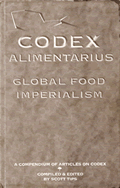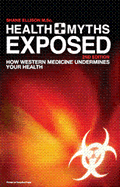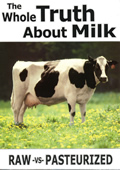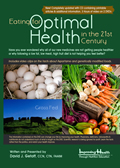USING NUTRITION TO HELP PERCEIVE AND COMBAT SWINE FLU
By
Byron J. Richards, CCN
September 18, 2009
NewsWithViews.com
There is valid concern that the H1N1 swine flu will readily infect Americans this flu season, resulting in high numbers of swine flu cases around the country. Already the CDC is reporting significant swine flu symptoms and swine flu cases in all states. This is because this new version of the flu hasn’t been around any time recently, meaning that our immune systems don’t have a memory of it and prior training in dealing with it. This does not automatically mean this is a major problem. Your immune system is perfectly capable of mounting a highly effective response against any never-before-seen virus. This article explains how your immune system does this, what nutrients can help, what forms of stress handicap this functionality, and how to help prevent the cytokine storm that would be associated with a severe swine flu episode.
Perception 101
Various foot soldiers of your immune system, (called innate immunity) come into contact with any invader, including the swine flu. During this front-line scuffle the invader is broken down into pieces. The invader’s unique look, called an antigen, is then presented to cells of your higher-powered cell-mediated immune response (adaptive immunity). The perception part of your immune system’s operation is based on antigen presentation.
You have three main types of antigen-presenting immune cells: macrophages, B lymphocytes, and dendritic cells. Macrophages and B lymphocytes can only present antigens to memory-related immune cells; therefore they do not initially help your higher-powered forces respond to a new type of virus, such as the current swine flu.
This is a main reason why previous experience has some advantages. It is also why the vaccination theory has some utility. If your immune system has some experience with previous exposure then a greater number of different types of immune cells can participate in the initial immune response, increasing the potential for a more robust immune response.
The most important antigen-presenting immune cells are dendritic cells, which is true in general and especially true when the invader is of the new variety. They are able to present antigen to naive T cells, the type of T cells that activate the higher-powered immune response when it is a new type of invader.
There are dendritic cells in your skin and on the inner part of the mucosal linings of your nose, lungs, stomach, and intestines. They are constantly taking samples of what you are coming into contact with.
If they recognize a viral enemy they help call ground troops to the scene for immediate front-line troop action (innate immunity) and they present the antigen of the enemy to your higher-powered immune response (adaptive immunity) so that you can mount a highly aggressive immune response targeted for the specific enemy.
As can be seen, most of this dendritic cell activity is taking place on various barriers that separate your internal body from the outside world. When your immune system is working well then the virus does not breech these barriers and enter your body and you do not feel sick, even though you may be mounting an immune response.
During rapid swine flu spreading, or any flu season, the chance of you not being exposed to the swine flu or other flu is remote. The odds of whether or not you actually get sick depend, in part, on how well your dendritic cells do their job.
I should point out that you don’t actually have to get sick or be vaccinated in order to develop a memory-enhanced immune response to future or present swine flu. If your immune system is successfully defending you from your exposure to the swine flu (which will be the case for many), then your memory-related immune cells will become “trained” in the current flu season as well as being prepared for the same invader in future years.
Within your body you also have dendritic cells on patrol in your blood. These cells are in an “immature” state, part of the way your immune system carries out patrols without at the same time having an aggressive immune response going when there is less likelihood of an invader. They are constantly nibbling on whatever is around them, taking small samples to see if anything is foreign. If they do identify a foreign invader like the new swine flu, then they rapidly mature into active dendritic cells and the battle is on.
Think of it this way: Your borders are lined with well-armed soldiers who have shoot to kill instructions if a viral enemy is identified. Dendritic cells on the borders are always on high alert. This is called mucosal immunity.
Dendritic cells in your circulation are more like a friendly police officer, constantly mingling and brushing shoulders with the crowd, and routinely checking identification. Even though these internal dendritic cells are in a more relaxed or casual state while on patrol in the civilian setting, they are capable of springing into deadly action and coordinating a military-style all out attack on the invader and anyone else who looks like that invader.
A fundamental nutritional concern relating to dendritic cells is simply do you have enough of them? And can you readily make more if needed in a time of war? These concerns are similar for all types of immune cells needed at a time of battle, as you actually manufacture immune troops on demand once a battle is taking place.
The most important calorie needed for any type of immune response is protein. Lacking adequate dietary protein seriously handicaps many aspects of the immune response, especially the production of new immune cells that require protein as the raw material for their formation. Whey protein, in particular, is an excellent immune support food.
You also need the energy to support the immune cell production line. If you are fatigued, tired, or already worn down then you can assume that your ability to make immune cells will be likewise adversely effected. Conversely, any dietary supplement that improves your energy will by definition support the energy-intense requirements of a vigorous and effective immune response, as long as the dietary supplement isn’t based on stimulants and your energy level isn’t based primarily on caffeine intake.
Because your immune system must make numerous cells rapidly the ability of DNA to replicate at an optimal pace is vital. This function requires folic acid (operating synergistically with immune-boosting B12). The lack of folic acid is known to reduce the immune response.
You also need iron to form immune troops. Low iron has been proven to reduce the efficient immune response of dendritic cells (as well as other immune cells). Iron supplements should only be of the best quality (such as iron glycinate), otherwise too much iron in a free state in your gut (from cheap supplements and prescription iron) can disturb your digestive tract and make bacterial infections grow.
Basic nutrient deficiencies are common in the elderly, many young children, vegetarians, menstruating women (especially if blood flow is heavy), those who eat junk food diets, during periods of high stress, and in those who exercise a lot. It is widely acknowledged that a number of nutrients are required for healthy immune system function.
Immune System Tolerance
Just about everything dendritic cells do in the process of coordinating an effective immune response is HIGHLY INFLAMMATORY BY DESIGN. This is important to understand as excess inflammation, even low-grade excess inflammation, sets the stage for early onset of just about every disease of aging. So here we have the opposite situation, your immune system uses inflammation as a tool to help combat the enemy.
I should point out that anti-inflammatory nutrients do not interfere with this process; rather they tend to make it work better. On the other hand, anti-inflammatory drugs can be a major problem – especially the TNFa-blocking drugs now in common use for arthritis.
Dendritic cells are dealing with inflammation as the nature of their job, just as a cook is working over open flames to broil food. Success depends in part on being able to handle a lot of heat without getting burned. A severe infection will test the boiling point. Your dendritic cells must have a mechanism for dealing with massive numbers of invaders; i.e., zillions of antigens.
If such a mechanism is not functioning then inflammation overload can take place in an attempt to respond to the infection. A severe case of overload is known as a cytokine storm. This would be like having a deep fat fryer catch fire in a kitchen and possibly burn the whole restaurant down. However, excess inflammation even if it isn’t so severe can have serious consequences to the quality of your immune response.
The ability to handle or tolerate a high level of inflammatory demand is vital to maintaining an efficient immune response under pressure. Scientists have spent considerable energy trying to figure out how your dendritic cells do this. And they were surprised to find out that it is two vitamins that are required for dendritic cell immune system tolerance, vitamin A and vitamin D. Yes, without adequate supply of these two nutrients your immune system can overheat and meltdown in the process of trying to do its work.
Furthermore, vitamin D is also needed for dendritic cells to properly present their antigens to the adaptive immune system, a critical step in mounting a high-powered flu-specific immune response.
When you stop and realize that 70% of the children in the U.S. are known to be vitamin D deficient and that children are a group at risk for potentially severe swine flu (meaning flu to the degree of a cytokine storm), you have to wonder why our government isn’t telling parents to have their kids take some extra vitamin D and be sure they are adequate in vitamin A – so as to reduce the risk of contracting a severe bout of swine flu.
I recommend 1200 IU of vitamin D for children under the age of 6 and 2000 IU of vitamin D for everyone over the age of 6. More may be needed by some people, especially if they are under high stress or suffer from other forms of excessive inflammation (such as chronic pain or an autoimmune problem).
Lactoferrin, an important component of mother’s milk, boosts many aspects of immunity and specifically helps dendritic cells have better tolerance for inflammation while at the same time helping them present antigen more efficiently. It is obvious that supporting immune tolerance is vital in times of infection. It is not at all surprising that the survival of the human race depended on having lactoferrin in mother’s milk, a tool that could be used in case there was not adequate vitamin A or D available in the mother’s diet.
Dendritic cells also require antioxidants in general, and vitamin C, vitamin E, and NAC (N-acetyl-cysteine) in particular, so as to sustain an immune battle and not have too much inflammation that tilts in the direction of a cytokine storm. It has now been demonstrated that dendritic cells head in the direction of an inflammatory funk once there is too much free radical damage. The only solution for this is antioxidants. In fact, the longer the battle the more you need, as antioxidants also power and protect the weapons your immune system uses to shoot “free radical bullets” at the enemy.
The new science shows that your dendritic cell team is not just involved with the initial identification of an invader. Rather, it is a central communication network in your immune response and it must be maintained in a high state of function during the entire infection for an optimal immune response to occur.
Thus, we need vitamin A, D, and possibly lactoferrin for basic function of immune system tolerance. And we must have enough antioxidants on board, especially vitamin C and NAC, so that the free radical damage naturally occurring during battle is minimized. There is nothing that replaces adequate nutrition for these purposes, purposes that are absolutely vital for an optimal immune response and reduced risk of a serious bout of swine flu or the very dangerous cytokine storm that is life threatening.
Superior Dendritic Cell Fitness
Dendritic cells are not only involved in an efficient immune response, they can be directly involved in many inflammatory problems associated with poor health. In other words, they can already be all worked up and generally unfit for high-performance duty.
The immune system cytokine known as TNFa (tumor necrosis factor alpha) is the primary signal that arouses dendritic cells and calls them into a higher state of pro-inflammatory activity. Many of your front line immune troops release TNFa when an invader is encountered, which is all part of a system of healthy function to get your immune system going to defend you.
Unfortunately, these very same immune cells required for a vigorous immune response are also involved in general inflammatory wear and tear of any kind. This means that under stress, especially excessive stress that is resulting in wear and tear, the level of TNFa will rise and consequently activate dendritic cells.
Too much fat also produces TNFa and adds to the systemic TNFa load, in turn activating dendritic cells from obesity. This is why obesity is a risk factor for severe swine flu.
The bottom line is that if you are already in some type of inflammatory state, then your dendritic cell operation is already inappropriately aroused and likely inefficient, especially if your issues tend to be ongoing. Such a pre-existing state of poorer health is a significant disadvantage to a healthy immune response in a time of need.
Zinc is a vital nutrient for reducing inappropriate inflammation within immune cells and restoring their efficiency. Adequate zinc is also needed just to make sure healthy immune cells are ready when they go into battle. Furthermore, zinc is required within dendritic cells so that they can maintain optimum function and natural balance homeostasis) under stress.
Any nutrition that helps you lose weight or helps you improve some aspect of inflammatory wear and tear will consequently promote better baseline fitness in your dendritic cell team. This is why anti-inflammatory nutrients like quercetin have been found highly effective at helping to combat and prevent the flu, as well as assisting weight loss.
Your digestive tract is especially important in this context. Too many hostile bacteria or yeast can wreak havoc with your immune system and dendritic cell function. This is why friendly flora (acidophilus) have been shown to help condition and tone your digestive dendritic cells as well as help reduce the number and severity of winter bug infections. Friendly flora also assists in the repair of your digestive tract lining and helps your gut recover from stress within it.
Lactoferrin has been proven to strengthen the digestive “barrier” wall, while enhancing the immune response against bacteria and viruses. The amino acid glutamine, also high in mother’s milk, is the primary amino acid needed to form the protein structure of your digestive lining as well as helping front line troops perform better in your gut.
First milk colostrum is also known to enhance digestive stability while reducing digestive and respiratory infections. It contains lactoferrin as well as many other strategies to enhance immune function.
An overgrowth of Candida albicans is especially problematic to your dendritic cells. Hostile Candida actually sends a signal to your dendritic cells telling them not to do anything in terms of mounting an immune response for a specific enemy (simply leaving dendritic cells in an inflammatory funk). Lactoferrin has been shown to inhibit Candida signals while boosting front line troop response.
Remember, any flu, including the swine flu, first incubates in your digestive tract before it moves to your respiratory system. If your digestive tract is out of whack then it is more likely to be a friendly Petri dish as opposed to having a super front-line immune troop operation.
Yet another example of the concept of dendritic cell fitness is that of interferon, a highly inflammatory immune system molecule that is vital for a competent immune response that will kill a viral invader. Scientists have just discovered that you need a low-level amount of interferon present in dendritic cells that are basically at rest, as a form of fitness, so that they can spring into action when needed. Having some interferon present seems to be the military equivalent of non-combat readiness training for dendritic cell troops. Vitamin C is needed for healthy interferon production. Bovine colostrum has been shown to enhance interferon status.
In many ways, fighting a nasty viral flu infection is like going for a 10-mile run. Even if you make it to the end you may have dealt with so many antigens that your dendritic cell team is in a state of wear and tear, leaving your defenses down for another infection to come along (such as a secondary bacterial infection or a flare up of the previous infection). Research shows that such a depleted immune system struggles to make TNFa to activate the key dendritic cell response to efficiently fight the next infection. In fact, your immune system can now be so tired of looking at antigens that it has trouble recognizing new ones. Even if your immune system has a memory of them your battle field may be so strewn with antigen debris that spotting the invader is like trying to find a needle in a haystack. This is why so many people either relapse or get a new infection, especially if they try to push themselves too soon following the flu or other bug. You must fully recover from an infection before pushing your body too hard.
Summary
Very basic nutrition can make a profound difference in fighting the swine flu, which would obviously reduce your chances of swine flu infection. Generally improved nutrition in our country would reduce the spread and severity of H1H1 swine flu, reduce the severity of swine flu symptoms (in those who do get it), and reduce the overall number of swine flu cases.
Whether or not you get a swine flu vaccine is your choice (I’m no fan, as outlined in my article, The Narrow Scope of Flu Vaccine Usefulness). Regardless of whether you do or don’t get the swine flu vaccine, nutrition is profoundly beneficial to increases the ability of your immune system to perform at a high level in a time of need.
An idea as simple as making immune cells is of extreme importance and requires protein, iron, folic acid, and B12.
Dendritic cells are vital players in the response to any flu challenge and especially when the type of flu coming around has not been seen before. Dendritic cells must function under very high stress and so need the ability to tolerate excessive antigen presentation and inflammation.
The key nutrients that allow this are vitamin D and vitamin A, lactoferrin can also be used. Quercetin works synergistically in this picture to reduce inflammation involving front line troops. Many other nutrients have anti-inflammatory properties that would lend support to better balance within this vital system.
Improving the efficient function of immune cells is vital. Zinc and vitamin C head the list, and are supported by the entire antioxidant network (NAC, vitamin E, etc).
|
Subscribe to the NewsWithViews Daily News Alerts! |
Managing stress, improving digestion, reducing any inflammatory health problem (not with immune suppressing or toxic drugs), and losing weight healthfully are all extremely beneficial towards creating the likelihood for a healthier immune response in a time of need.
There is a new villain in the neighborhood. Don’t be caught flat footed.

















